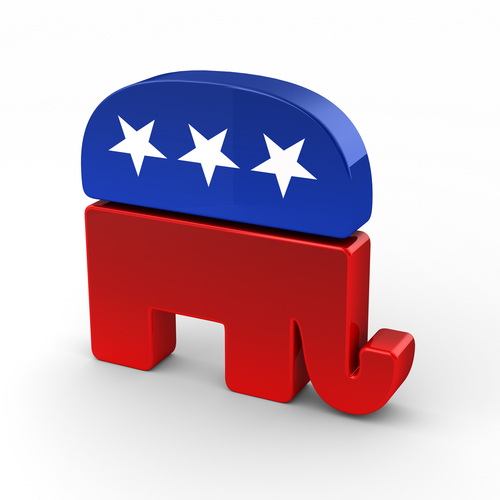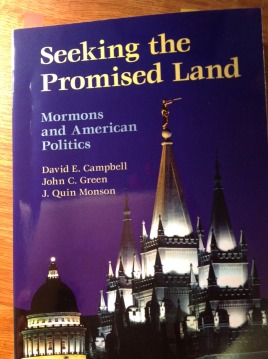 There’s an old stereotype that says Americans get more conservative as we get older. First we start voting for a few more Republican candidates because we finally have a little set aside that we want to protect from taxes, and then before we know it we have become that crotchety old man yelling at kids to get off our lawn.
There’s an old stereotype that says Americans get more conservative as we get older. First we start voting for a few more Republican candidates because we finally have a little set aside that we want to protect from taxes, and then before we know it we have become that crotchety old man yelling at kids to get off our lawn.
It turns out that statistically, the stereotype is partly true. Many people do get more conservative, at least politically if not always socially, as they age.
Unless they are Mormons who grew up within the last few decades.
In Seeking the Promised Land: Mormons and American Politics, David Campbell, John C. Green and J. Quin Monson draw on an army of data to explain past and current political trends in Mormonism, including this one. They write:
In general, as age increases do does the probability of identifying as a Republican. Strikingly, we see the opposite trend for Mormons. Older Mormons (over sixty-five) are less likely to favor the Republican Party (51 percent) than Mormons under thirty (69 percent), presumably reflecting the fact that during their formative political years, these Mormons were more likely to identify with the Democratic Party than they are today. (p. 86)
After I read this, and after I stopped weeping profusely into my Sprite, I spoke with two of the three authors to find out more.
RNS: Um, say what? There’s really almost a 20-point increase in the percentage of younger Mormons who identify as Republican?
 Dave Campbell, Notre Dame: Here’s the story. Originally, starting with Utah’s statehood, Mormons were Democrats because the Republicans had wanted to stamp out Mormonism. Over the course of the 20th century, Mormons became bipartisan. And about the time we get to the early 1980s, we see this shift.
Dave Campbell, Notre Dame: Here’s the story. Originally, starting with Utah’s statehood, Mormons were Democrats because the Republicans had wanted to stamp out Mormonism. Over the course of the 20th century, Mormons became bipartisan. And about the time we get to the early 1980s, we see this shift.
Quin Monson, BYU: Well, you do see it in the 80s with the election of a bunch of Republicans in places like Utah, but the shift [toward a Republican affiliation] was gradual beginning after World War II.
Campbell: Today, that evidence exists among old Mormons. If you look at Mormons who came of political age in the 1950s and 60s, they are far more likely to be Democrats than young Mormons. That is exactly the opposite of the rest of the population, where the young are the Democrats.
Monson: It’s the New Deal FDR Democrats who are still hanging on, but they won’t be with us that much longer. The shift toward leaning Republican has continued in the 1990s and the 21st century. Mormons are going to become even more Republican with time.
RNS: You say in the book that people tend to follow their parents’ political affiliation. Is that even more true among young Mormons these days?
Campbell: That’s known as the socialization theory of partisan affiliation. My back-of-the-envelope guesstimate would be around 75 percent stay with their parents’ tradition. Kids generally inherit the party affiliation of their parents.
Monson: And among Mormons, we have to consider all the reinforcing influences that are in the culture. We place so much emphasis on the family in Mormonism, so I think you would see an even higher level of respect and deference for parents and their political views, but there isn’t data yet to allow us to nail this down for sure.
RNS: Do you foresee any situation in which the trend might change, and more young Mormon adults would start veering toward the Democratic Party?
Monson: There are two moving parts there—what the political parties are doing, and what Church leaders are emphasizing. This is how Mormons became so Republican in the first place: that there were issues that Church leaders began putting a heavy emphasis on, like the traditional family. One of those might be, in the future, the way we emphasize caring for the poor. If that were emphasized we might see a different kind of [political] alignment over time.
RNS: Like with Jeffrey R. Holland’s talk from this month’s General Conference?
Monson: Yes. But it would have to happen repeatedly, again and again over a period of years. If you look at the church magazines and publications from the last forty years, you would see lots of articles pointing members toward a conservative stance on family issues. There are a few that also talk about social issues, but it’s far fewer in number.





